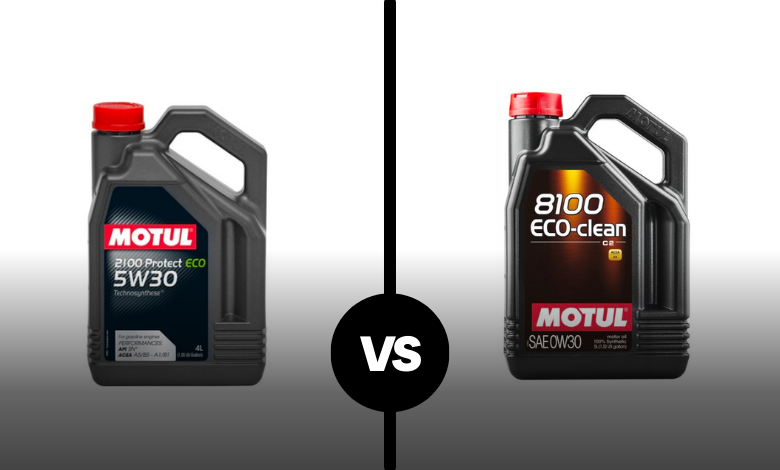5w30 vs 0w30

We will compare different features for 5w30 vs 0w30. 0W30 engine oil is one of the thinnest engine oils currently available, offering greater temperature tolerance and fuel efficiency than thicker oils. However, only use 0w30 motor oil if recommended by your car manufacturer as this could damage its engine.
Just like 10w30 vs 5w40, we make a detailed comparison.
What is 5w30?
The 5w30 motor oil is one of the most widely-used engine oils used in vehicles today. As a multi-grade lubricant that can easily adapt to changing climate conditions and help protect engine components from damage, its use has become widespread among automotive enthusiasts and drivers. Cold temperatures allow the oil to easily flow, while its viscosity remains safe even during hot conditions – making this suitable for many vehicles and driving situations.
Most car manufacturers recommend motor oil in their owner’s manuals. When selecting motor oil to use, always follow these recommendations.
The 0w30 motor oil is thinner and flows more quickly than 5w30, making it easier to lubricate and seal your engine while reducing friction, increasing performance and helping lower emissions of your car. Suitable for low speed driving conditions as well as higher ones.
What is 0w30?
0w30 engine oil has an ideal low viscosity formulation that makes it suitable for cold temperatures. Furthermore, its wide temperature operating capabilities make 0w30 an excellent choice for any vehicle; in particular those requiring other grades of engine oil. However, its kinematic viscosity allows seamless switching.
As multigrade oils, both 5w30 vs 0w30 contain additives to maintain viscosity across various temperature settings. While 0W30 stands for winter – which provides good thermal stability and resistance to thickening at lower temperatures – 5W30 still performs effectively at handling engine heat in hot environments as well. If your owner’s manual specifies one viscosity over another, opting for that one would always be wisest. We make a comparison like in “15w40 vs 10w30“.
Differences Between 5w30 vs 0w30
5w30 vs 0w30 is a significant comparison for those who are more sensitive to their cars, even though it gives similar results in many areas. Selecting the ideal motor oil is key to ensuring that your vehicle runs optimally. There are various kinds of engine oil, each offering unique benefits and drawbacks; when making your selection, seek advice from your vehicle manufacturer; 0w30 and 5w30 are multigrade formulations designed to work at various temperatures.
0w30 engine oil is thinner than 5w30 and suitable for most conventional vehicles. Additionally, its thermal and oxidation stability helps improve fuel economy, as well as contributing to improved fuel economy.
Difference between 0w30 and 5w30 engine oils lies in their viscosities at colder temperatures; 5w30 oil has higher viscosities at hotter ones. Therefore, 0w30 oil may be more suitable for cold weather driving conditions due to lower viscosity at lower temperatures; however other factors could have an impact on fuel economy, including how often and how frequently your car engine is used. 5w30 vs 0w30 is one of the most curious comparisons about motor oil in recent years.
0w30 and 5w30 multigrade engine oils provide superior lubrication to the internal components of your car’s engine, operating efficiently across a range of temperatures. In particular, 0w30’s low viscosity allows it to flow easily at lower temperatures for better cold-start performance. 5w30 vs 0w30 are not dramatically different products from each other in terms of price.
5w30 has a higher viscosity level and is tailored for extreme heat environments. Suitable for passenger cars, trucks, SUVs and light vans alike; motor oil serves as a lubricant that helps reduce friction within an engine while increasing fuel efficiency. This is a good example for 5w30 vs 0w30.
0W30 motor oil has a lower viscosity and should be used in colder temperatures to help reduce friction, improve fuel economy and protect engines against damage while providing superior lubrication. 0w30 motor oil is designed specifically to withstand colder temperatures, and most auto manufacturers recommend its use during this period. Using it can keep your car running smoothly in winter weather while protecting it against wear and tear. Furthermore, its low viscosity enables more fluidity when working under extreme conditions without harming its engine.
Can I Use 0w30 Instead of 5w30?
If the owner manual of your car calls for either 0w30 or 5w-30 oil, that should be sufficient. For high-performance vehicles however, consult with the manufacturer first as to which type of oil they recommend for optimal performance.
0W30 engine oil is an exceptional multigrade motor oil for use in cold conditions. The low viscosity rating allows your engine to start up quickly while providing better heat transfer, protecting against engine degradation and providing greater heat exchange efficiency – yet at an increased cost over conventional motor oils.
Utilizing the appropriate type of oil can save money on fuel. 0w-30 oil is lightweight and less viscous than traditional motor oils, helping improve your fuel economy while offering excellent wear protection, sealing properties and wear resistance. One downside may include overfilling it which could result in loss of performance – always check your engine oil level prior to driving!
FAQ
Can you mix 5w30 and 0w30?
Mixing 0w30 and 5w30 motor oil should generally be safe, although it’s best to follow your vehicle manufacturer’s recommendations regarding viscosity grade and viscosity grade for best performance. Otherwise, reduced fuel economy or engine wear could occur. Also ensure compatibility by only mixing products from one brand at once.
Which one is better: 5w30 vs 0w30?
Both 0w30 and 5w30 multigrade oils can be used in most vehicles. 0w30 performs better in cold temperatures than 5w30 when selecting motor oil for your vehicle, making the selection process difficult; to get optimal results it’s wise to follow manufacturer recommendations when making this choice. It is enough to mention these for 5w30 vs 0w30.
